Abstract
Four adult humans made repeated choices between two time-based schedules of points exchangeable for money: a fixed-interval schedule and a progressive-interval schedule that began at 0 s and increased in fixed increments following each point delivered by that schedule. Under reset conditions, selection of the fixed schedule not only produced a point but also reset the progressive interval to 0 s. Reset conditions alternated with no-reset conditions, in which the progressive-interval duration was independent of fixed-interval choices. Fixed-interval duration and progressive-interval step size were varied independently across conditions. Subjects were exposed to all step sizes in ascending order at a given fixed-interval value before the value was changed. Switching from the progressive-interval schedule to the fixed-interval schedule was systematically related to fixed-interval duration, particularly under no-reset conditions. Switching occurred more frequently and earlier in the progressive-schedule sequence under reset conditions than under no-reset conditions. Overall, the switching patterns conformed closely to predictions of an optimization account based upon maximization of overall reinforcement density, and did not appear to depend on schedule-controlled response patterns or on verbal descriptions of the contingencies.
Full text
PDF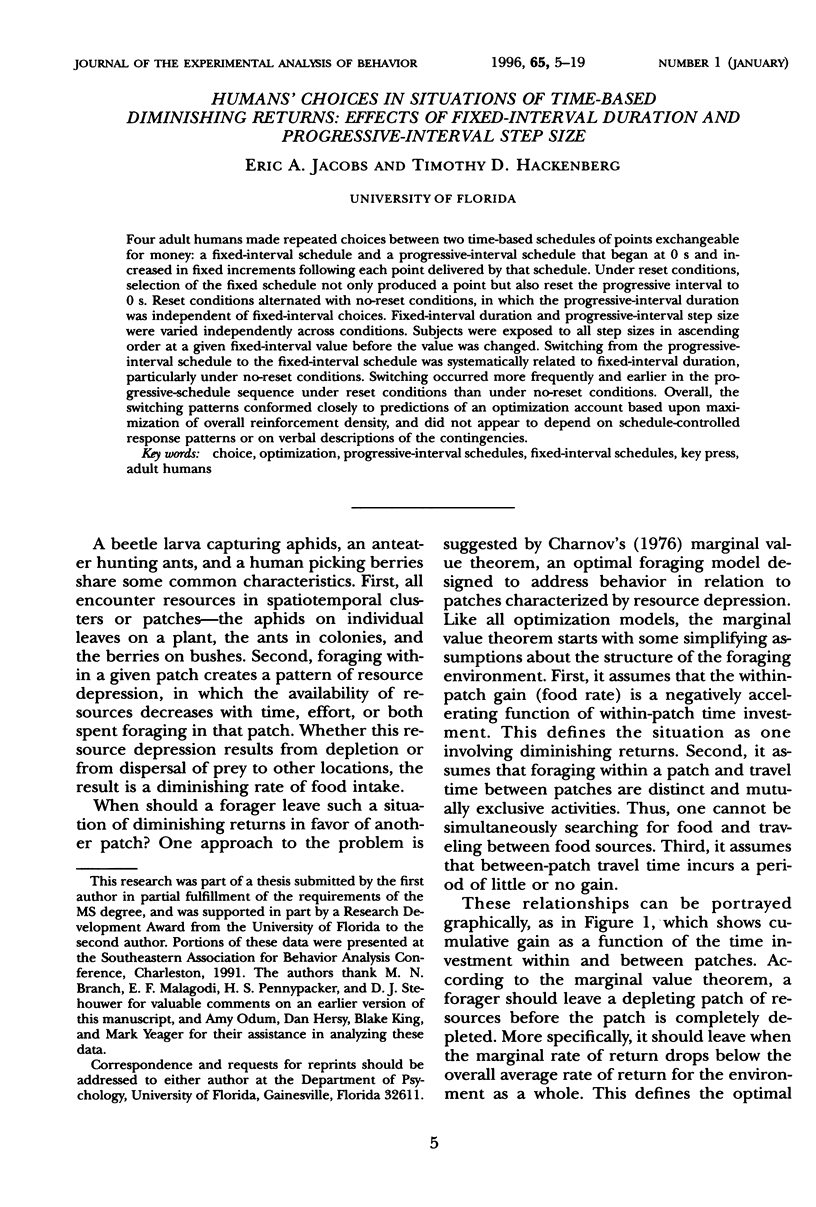
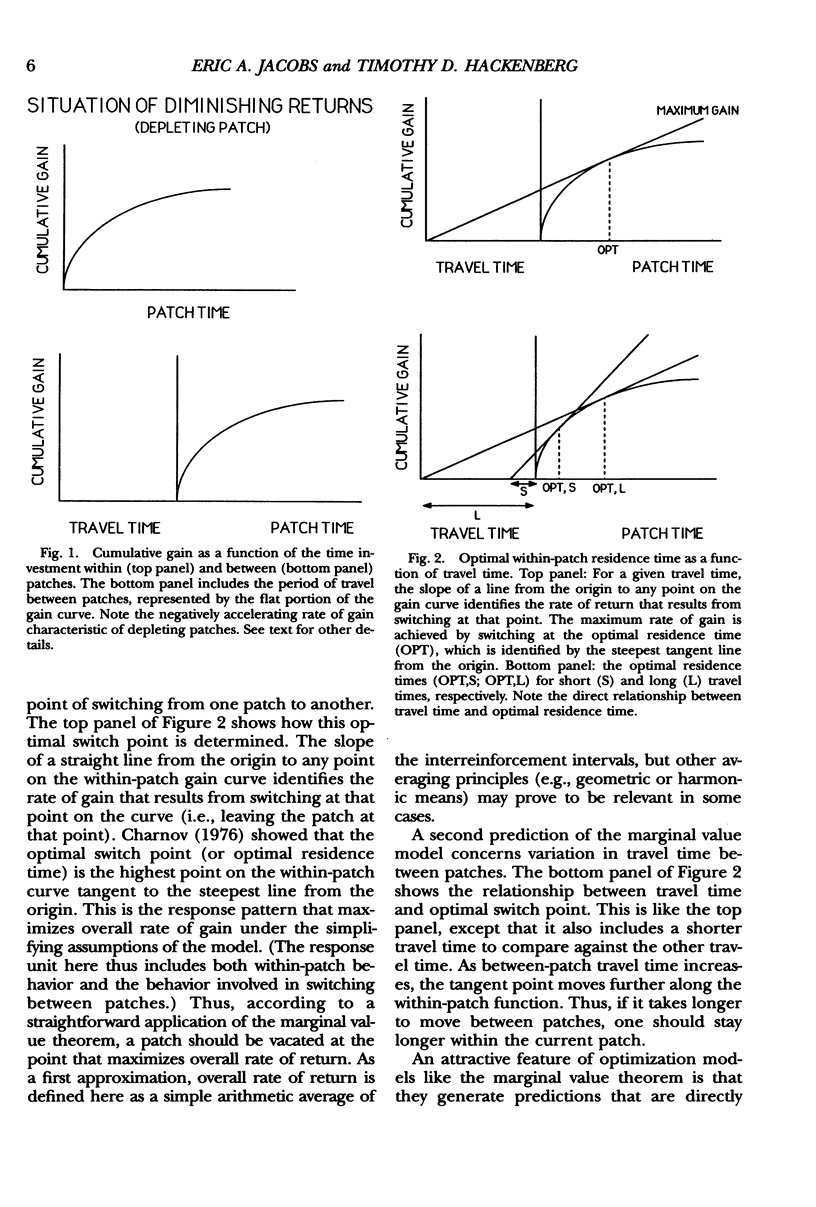
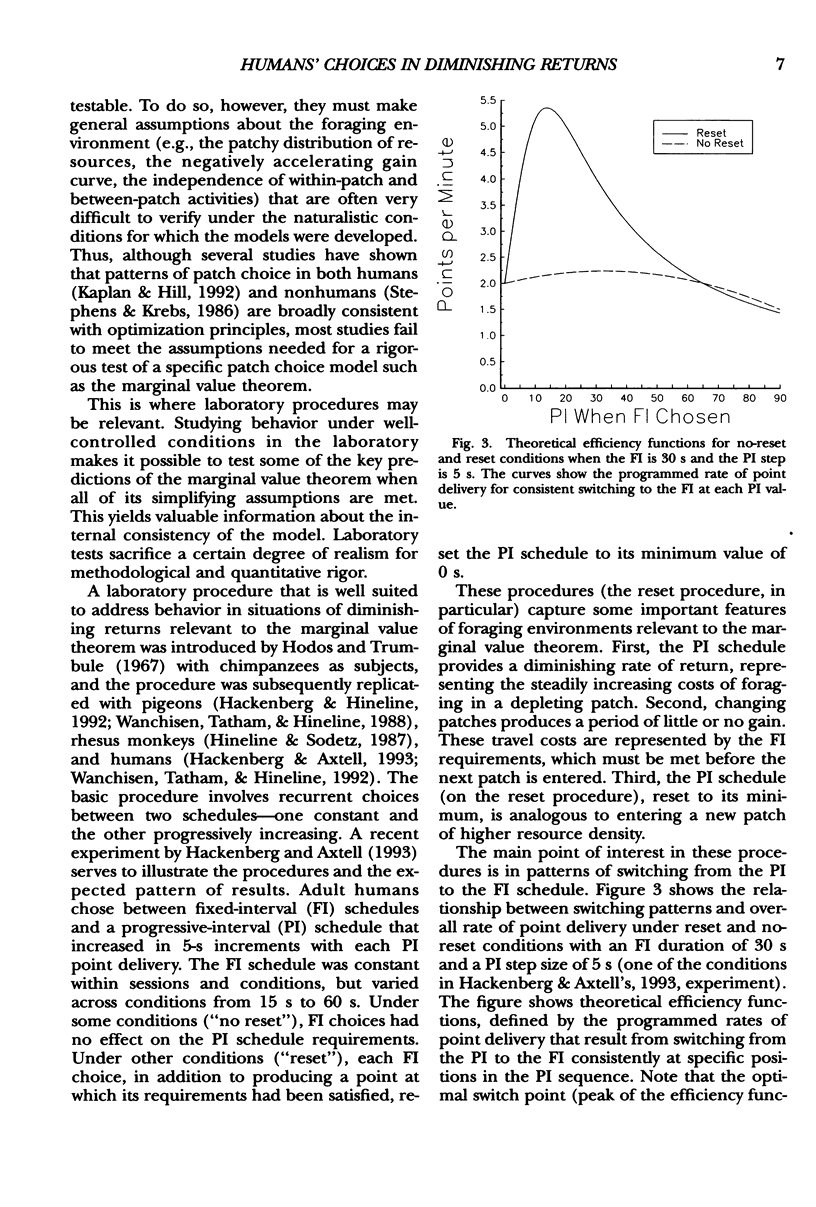
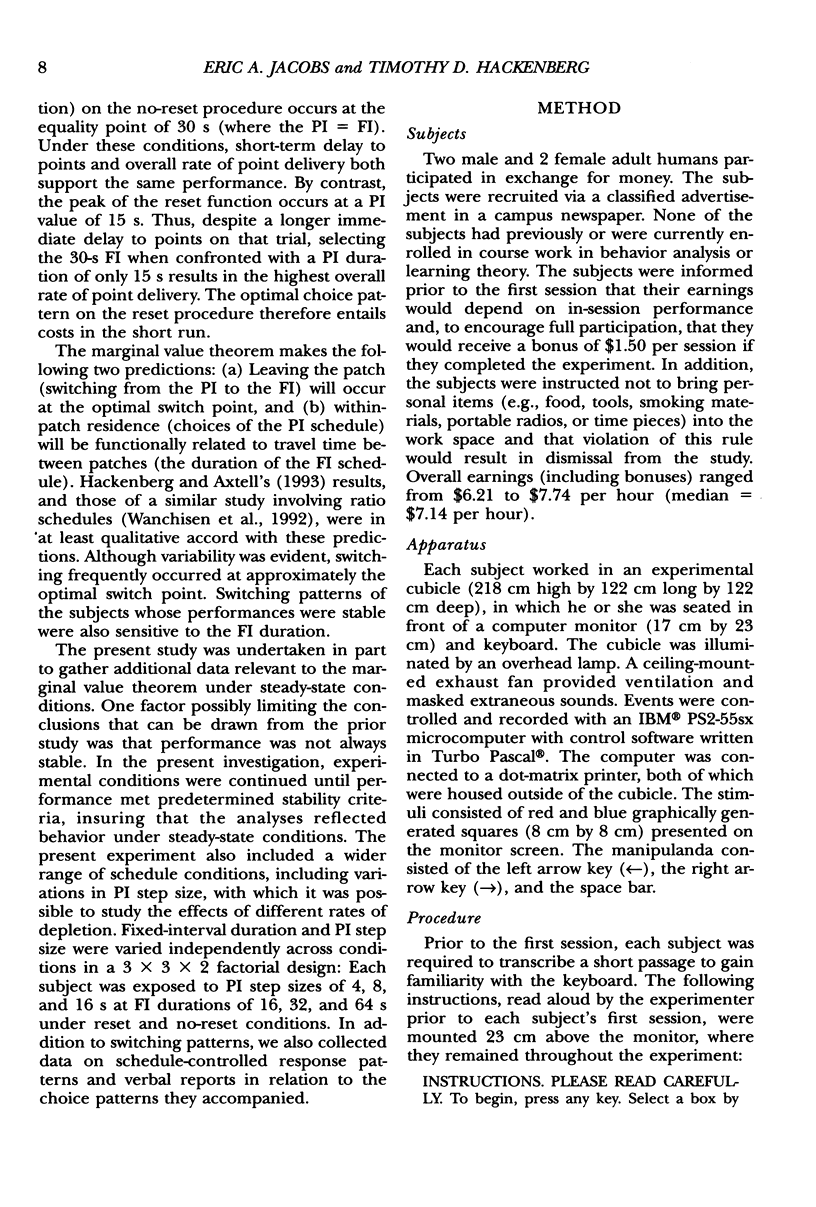
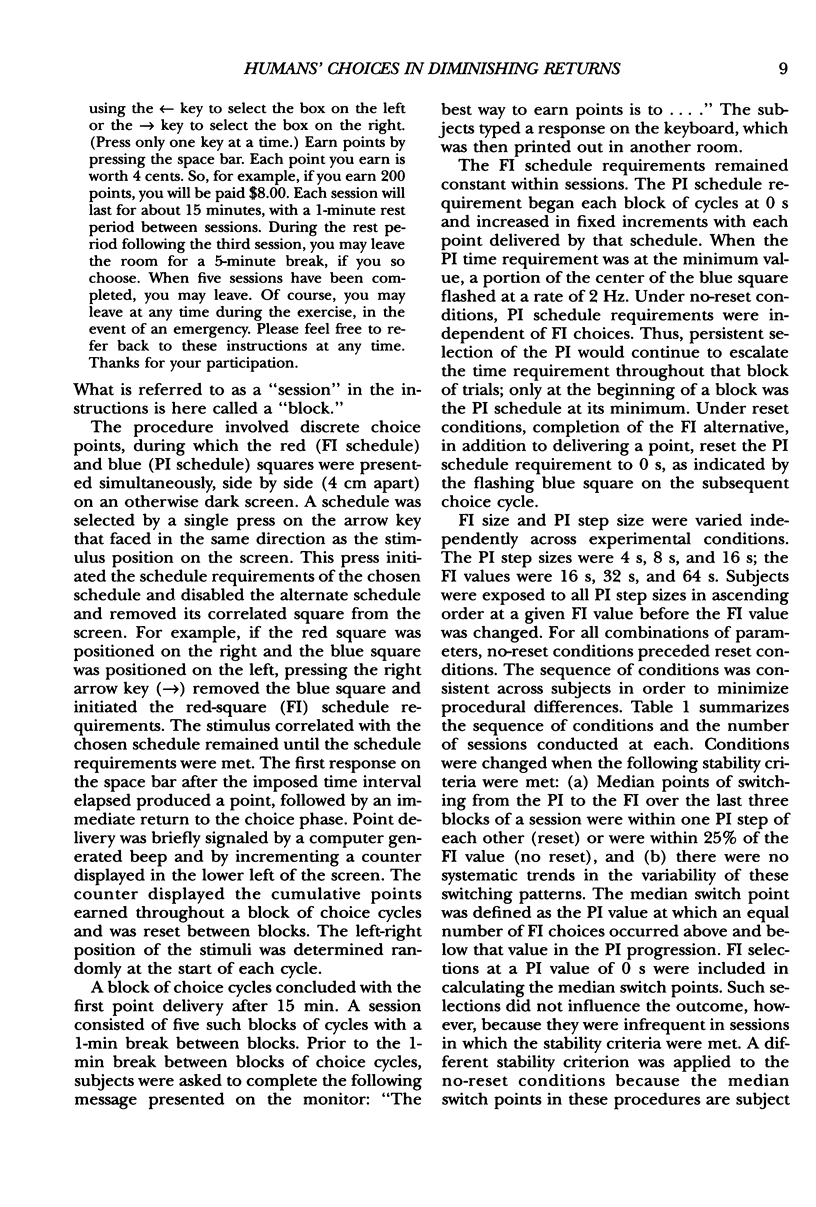
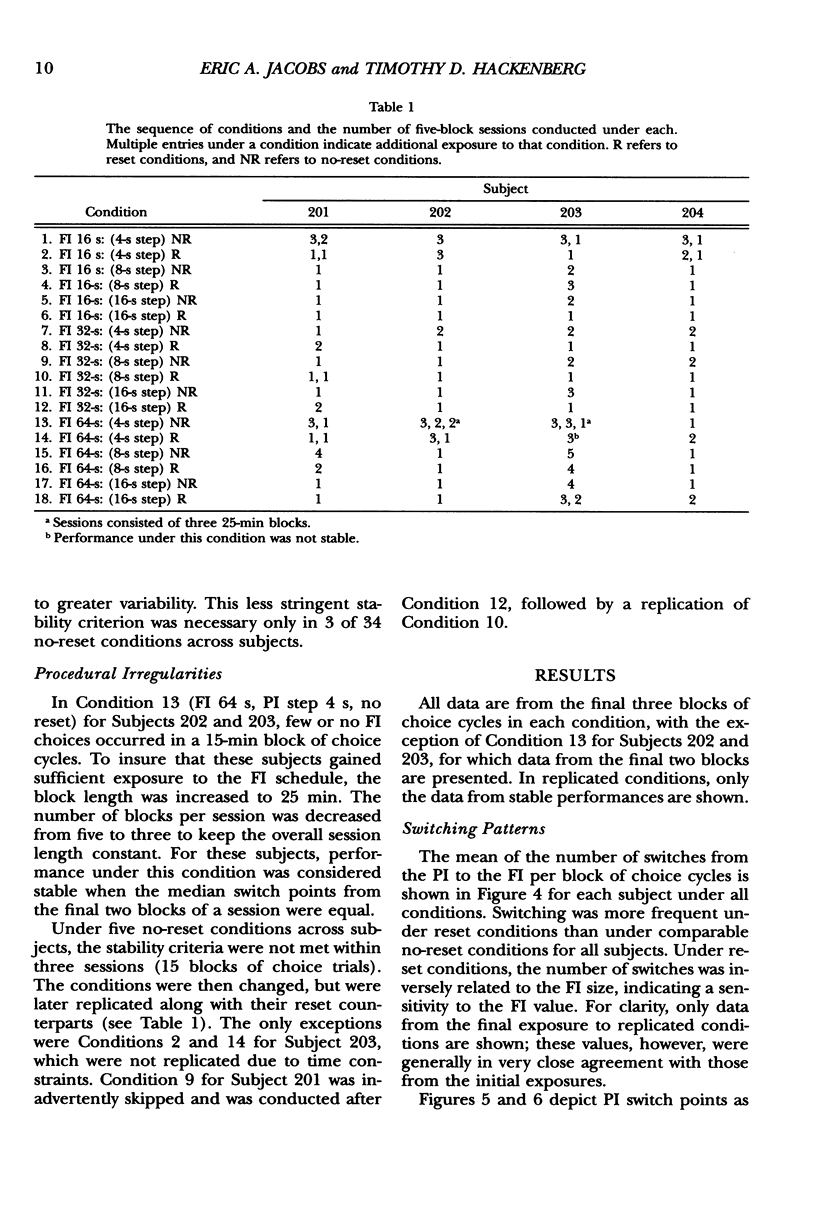
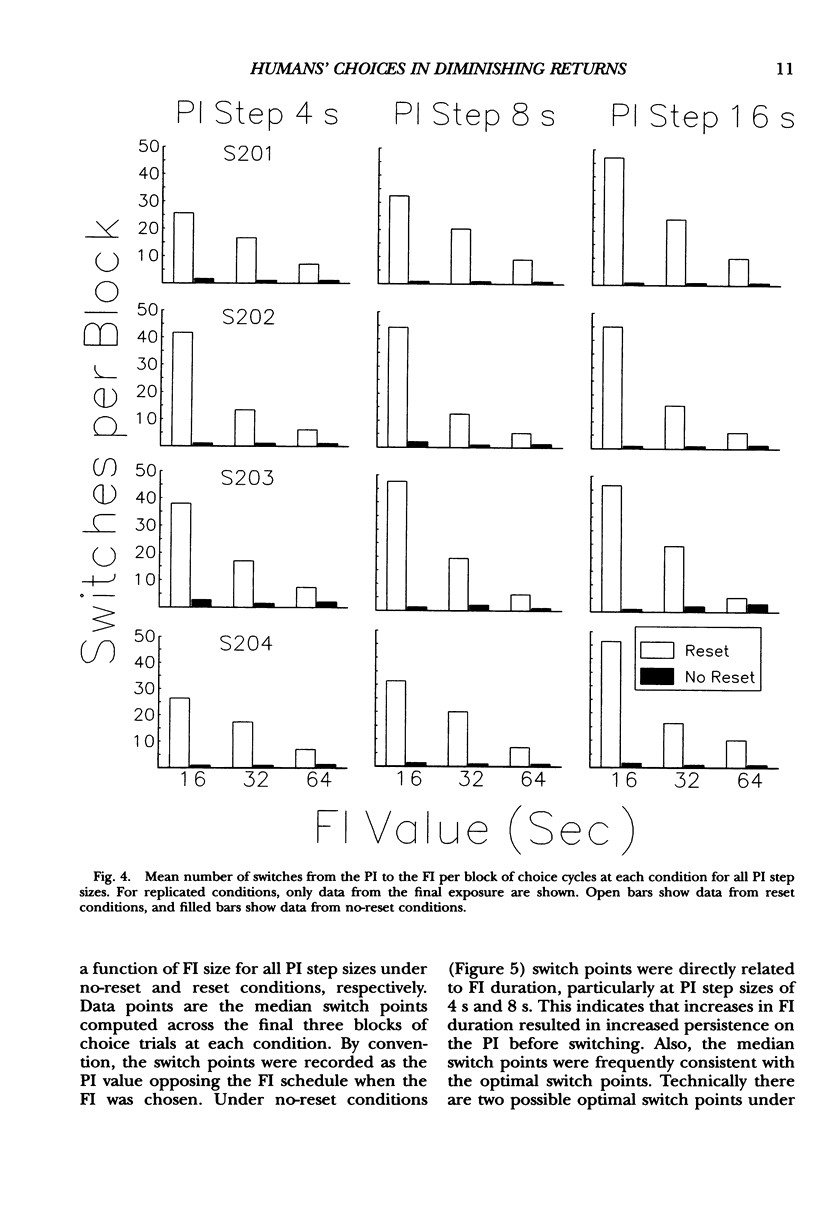
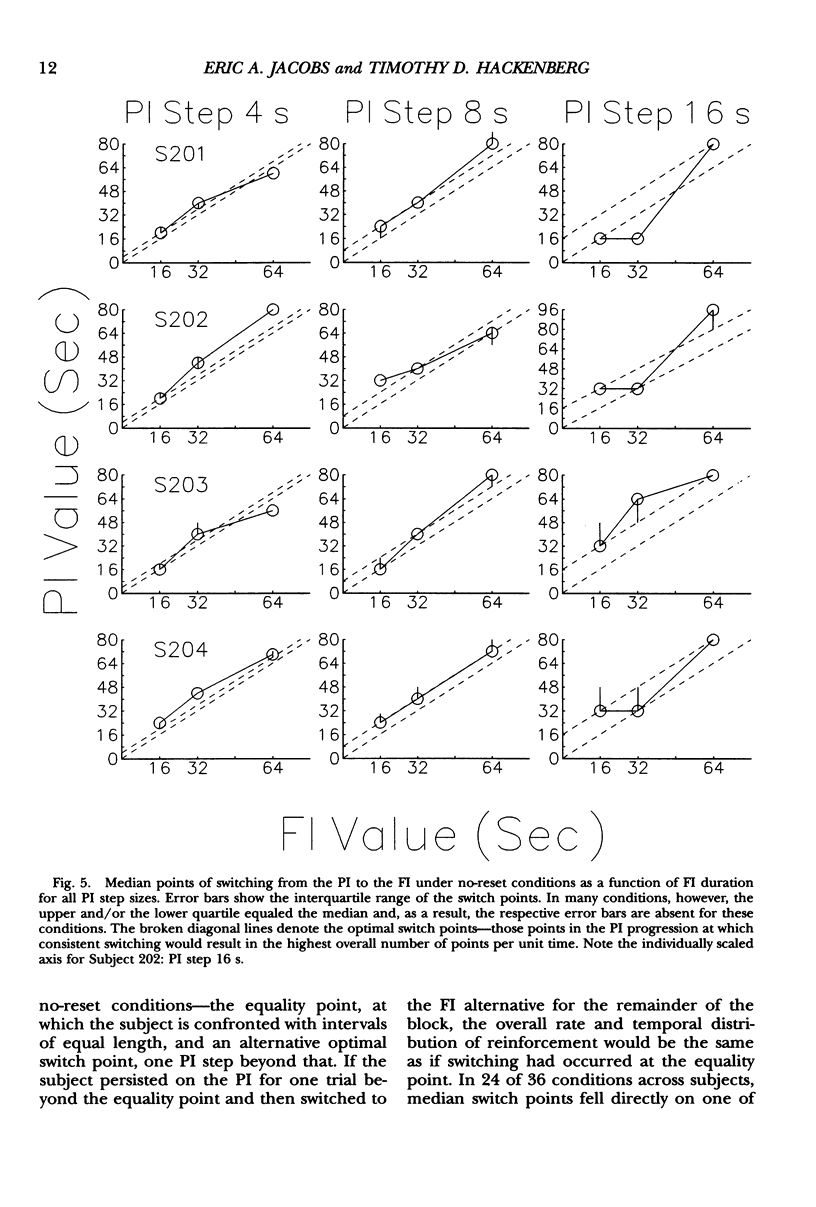
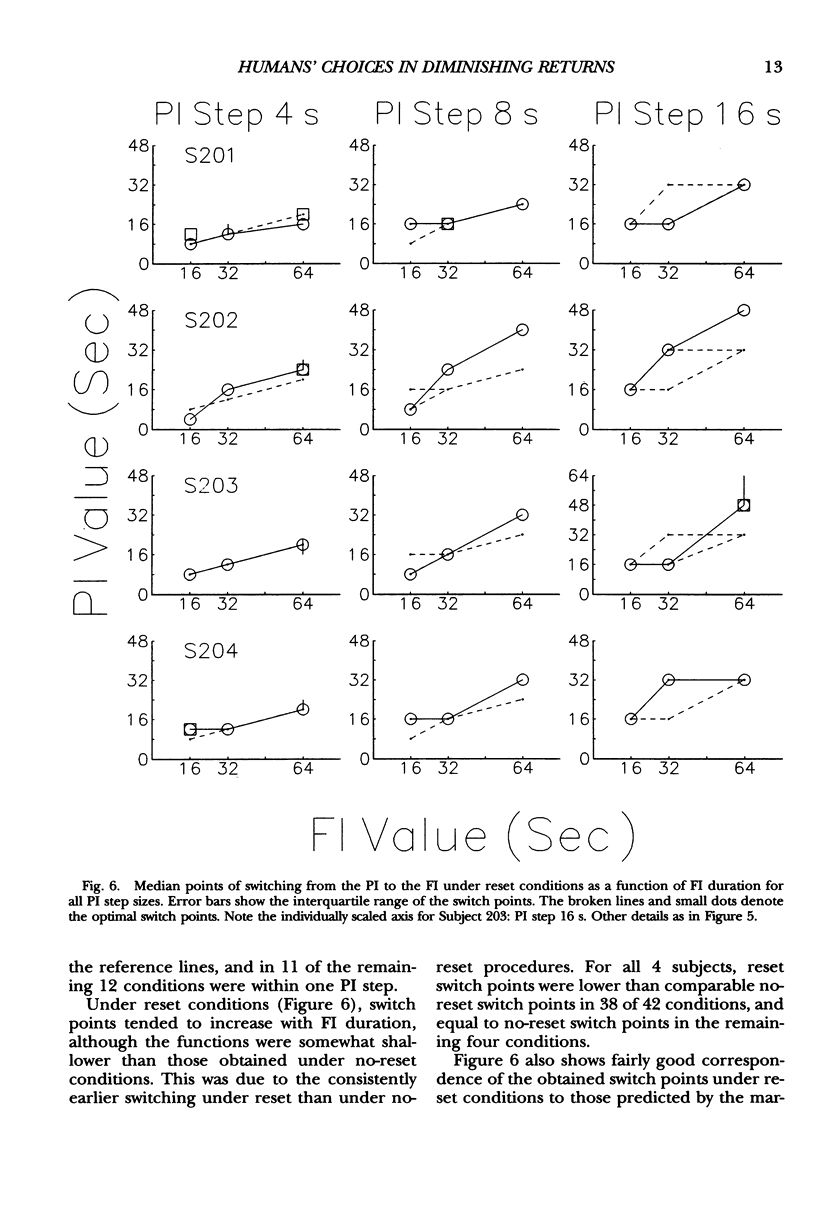
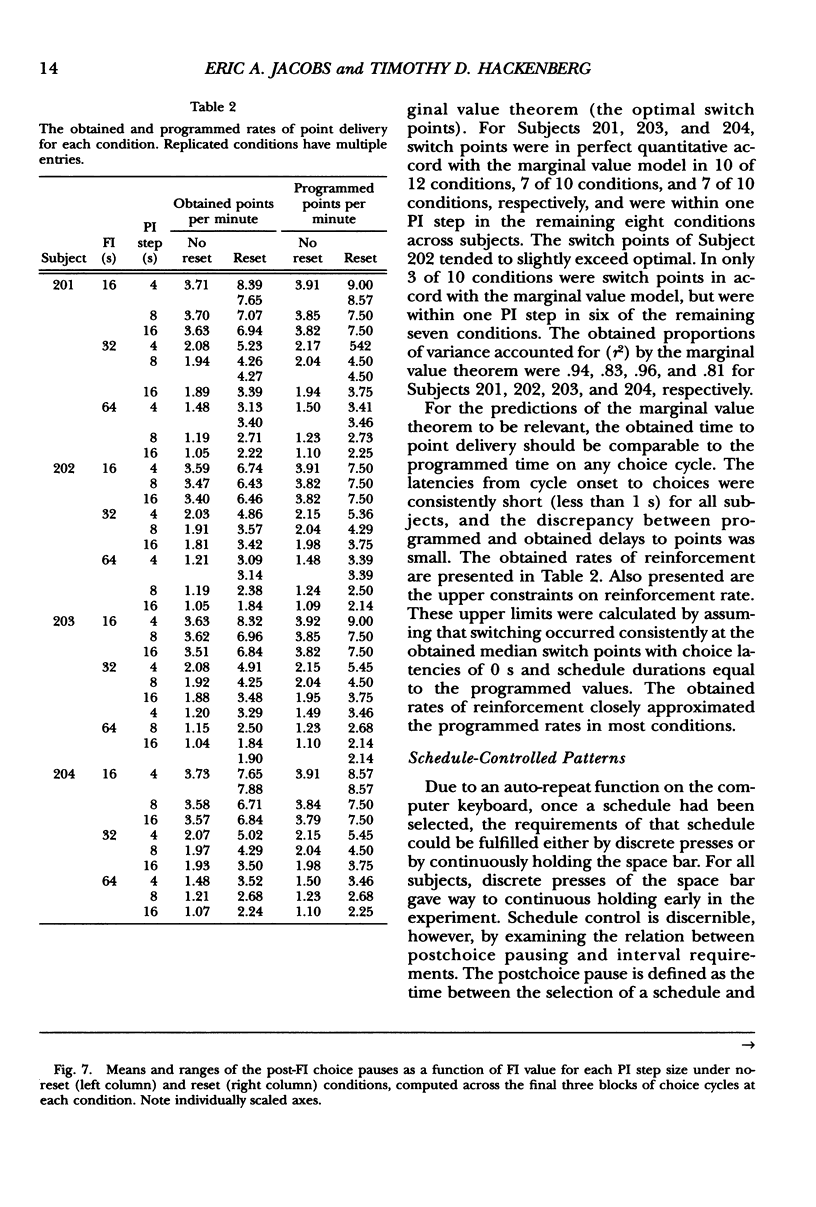
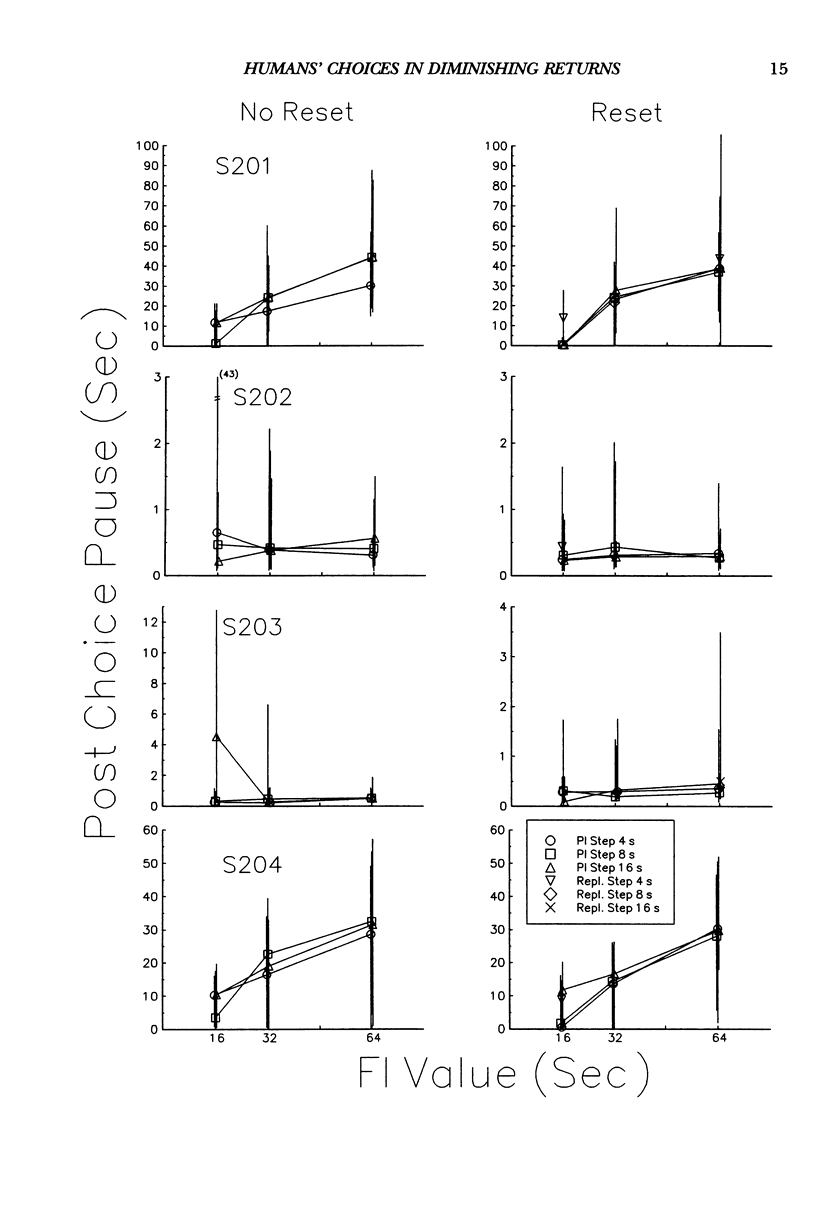
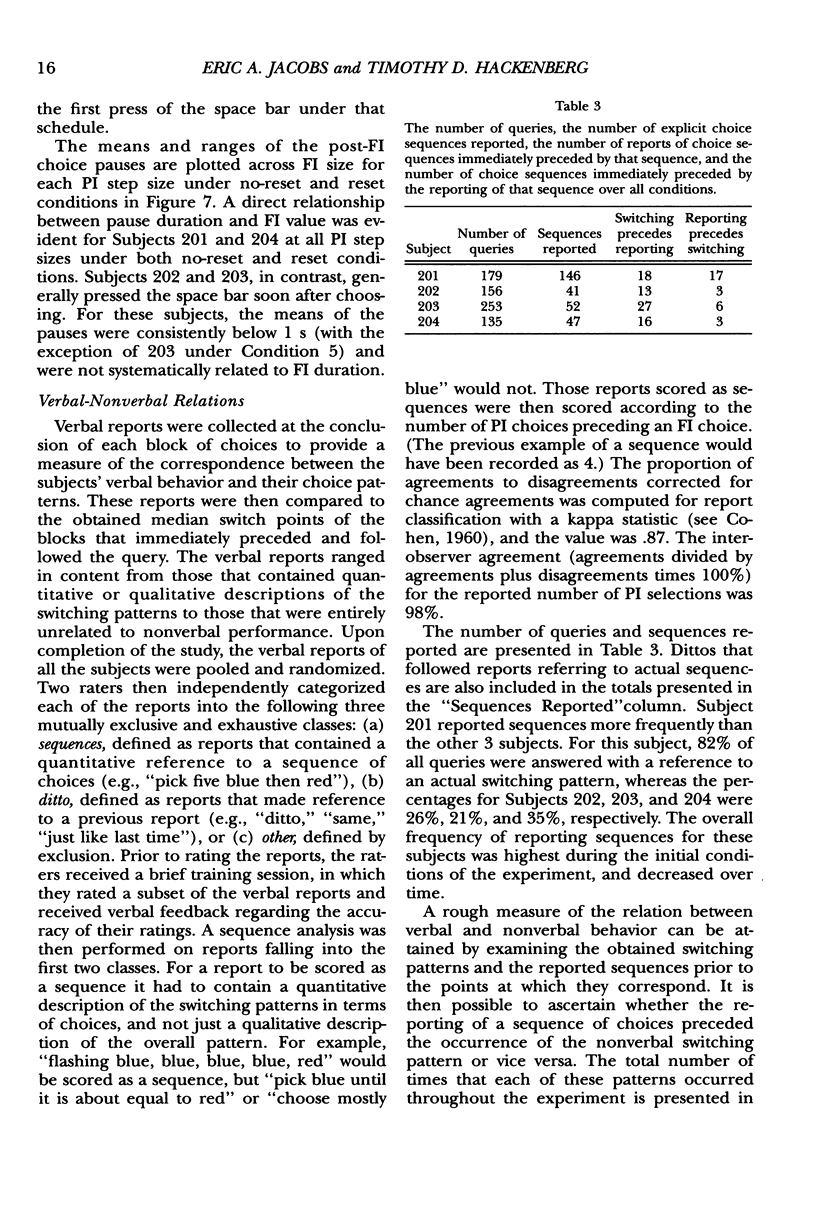
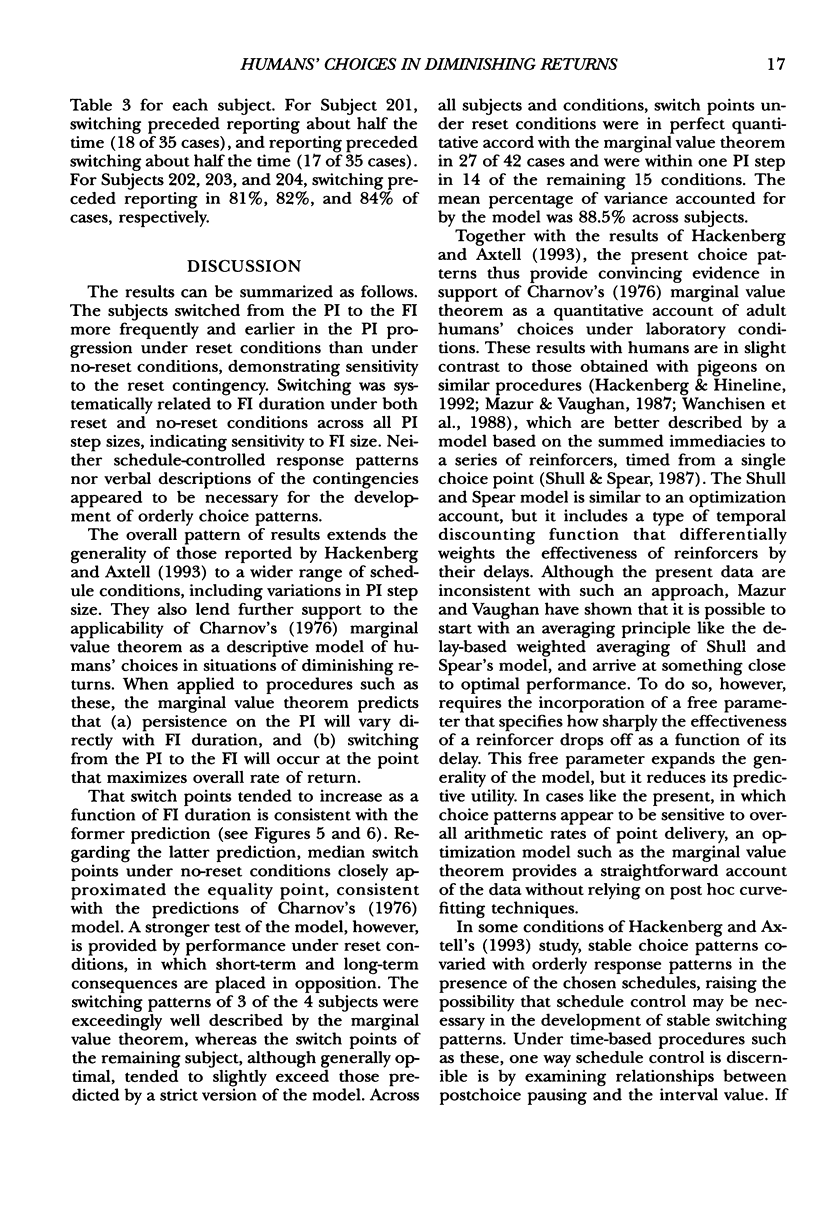
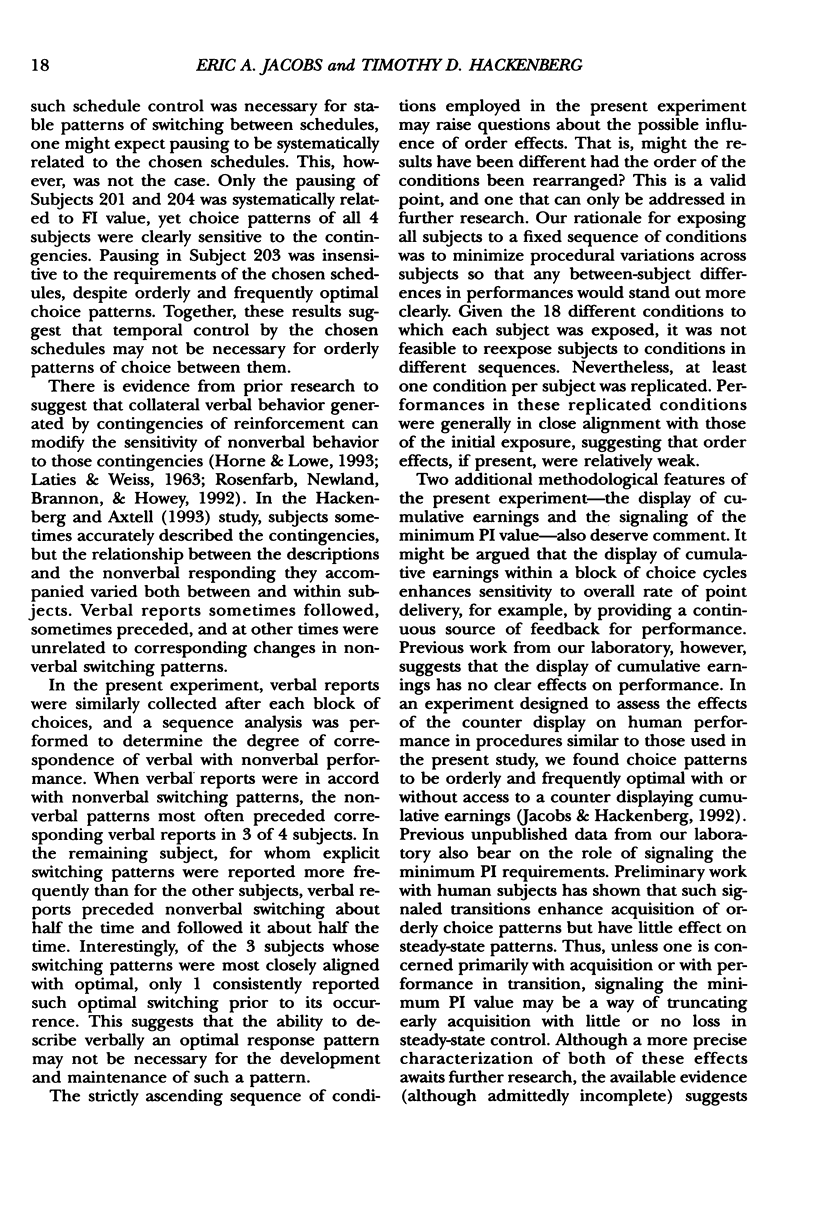
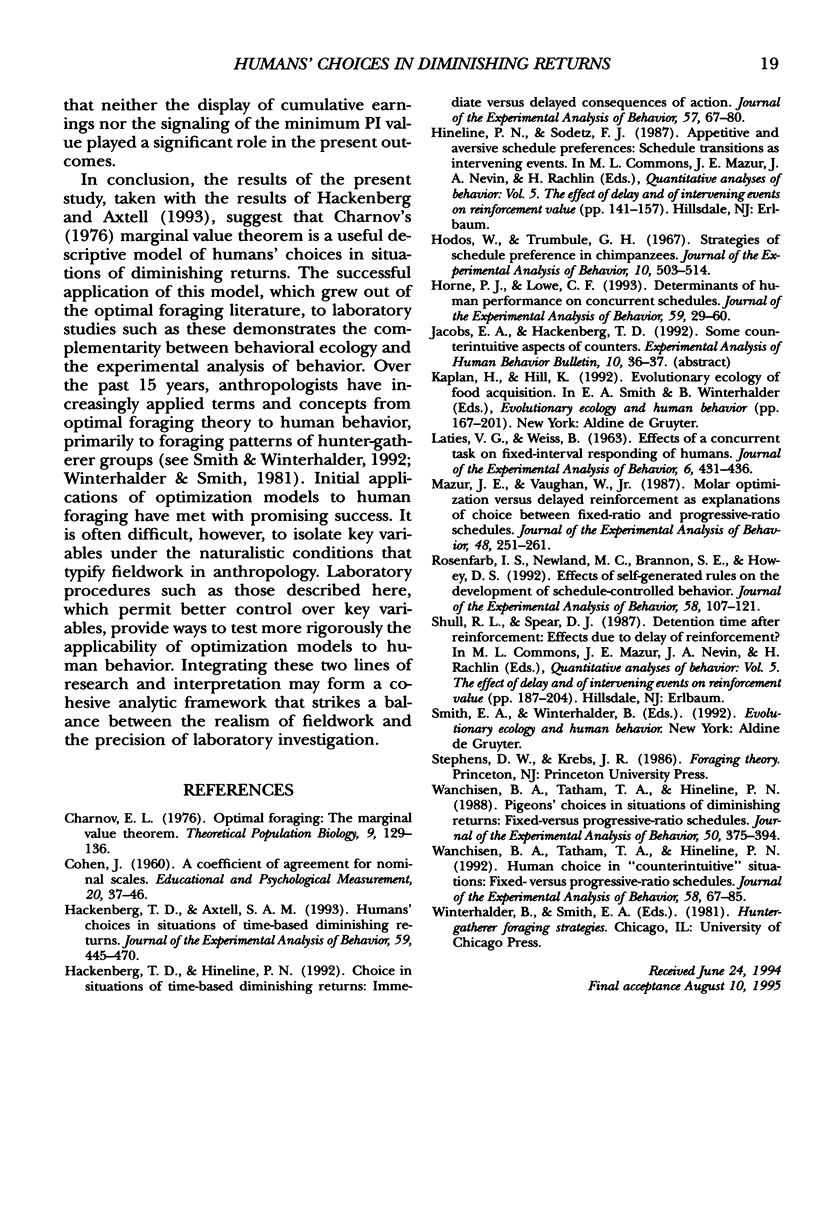
Selected References
These references are in PubMed. This may not be the complete list of references from this article.
- Charnov E. L. Optimal foraging, the marginal value theorem. Theor Popul Biol. 1976 Apr;9(2):129–136. doi: 10.1016/0040-5809(76)90040-x. [DOI] [PubMed] [Google Scholar]
- Hackenberg T. D., Axtell S. A. Human's choices in situations of time-based diminishing returns. J Exp Anal Behav. 1993 May;59(3):445–470. doi: 10.1901/jeab.1993.59-445. [DOI] [PMC free article] [PubMed] [Google Scholar]
- Hackenberg T. D., Hineline P. N. Choice in situations of time-based diminishing returns: immediate versus delayed consequences of action. J Exp Anal Behav. 1992 Jan;57(1):67–80. doi: 10.1901/jeab.1992.57-67. [DOI] [PMC free article] [PubMed] [Google Scholar]
- Hodos W., Trumbule G. H. Strategies of schedule preference in chimpanzees. J Exp Anal Behav. 1967 Nov;10(6):503–514. doi: 10.1901/jeab.1967.10-503. [DOI] [PMC free article] [PubMed] [Google Scholar]
- Horne P. J., Lowe C. F. Determinants of human performance on concurrent schedules. J Exp Anal Behav. 1993 Jan;59(1):29–60. doi: 10.1901/jeab.1993.59-29. [DOI] [PMC free article] [PubMed] [Google Scholar]
- Laties V. G., Weiss B. Effects of a concurrent task on fixed-interval responding in humans. J Exp Anal Behav. 1963 Jul;6(3):431–436. doi: 10.1901/jeab.1963.6-431. [DOI] [PMC free article] [PubMed] [Google Scholar]
- Mazur J. E., Vaughan W., Jr Molar optimization versus delayed reinforcement as explanations of choice between fixed-ratio and progressive-ratio schedules. J Exp Anal Behav. 1987 Sep;48(2):251–261. doi: 10.1901/jeab.1987.48-251. [DOI] [PMC free article] [PubMed] [Google Scholar]
- Rosenfarb I. S., Newland M. C., Brannon S. E., Howey D. S. Effects of self-generated rules on the development of schedule-controlled behavior. J Exp Anal Behav. 1992 Jul;58(1):107–121. doi: 10.1901/jeab.1992.58-107. [DOI] [PMC free article] [PubMed] [Google Scholar]
- Wanchisen B. A., Tatham T. A., Hineline P. N. Human choice in "counterintuitive" situations: fixed- versus progressive-ratio schedules. J Exp Anal Behav. 1992 Jul;58(1):67–85. doi: 10.1901/jeab.1992.58-67. [DOI] [PMC free article] [PubMed] [Google Scholar]
- Wanchisen B. A., Tatham T. A., Hineline P. N. Pigeons' choices in situations of diminishing returns: fixed- versus progressive-ratio schedules. J Exp Anal Behav. 1988 Nov;50(3):375–394. doi: 10.1901/jeab.1988.50-375. [DOI] [PMC free article] [PubMed] [Google Scholar]


